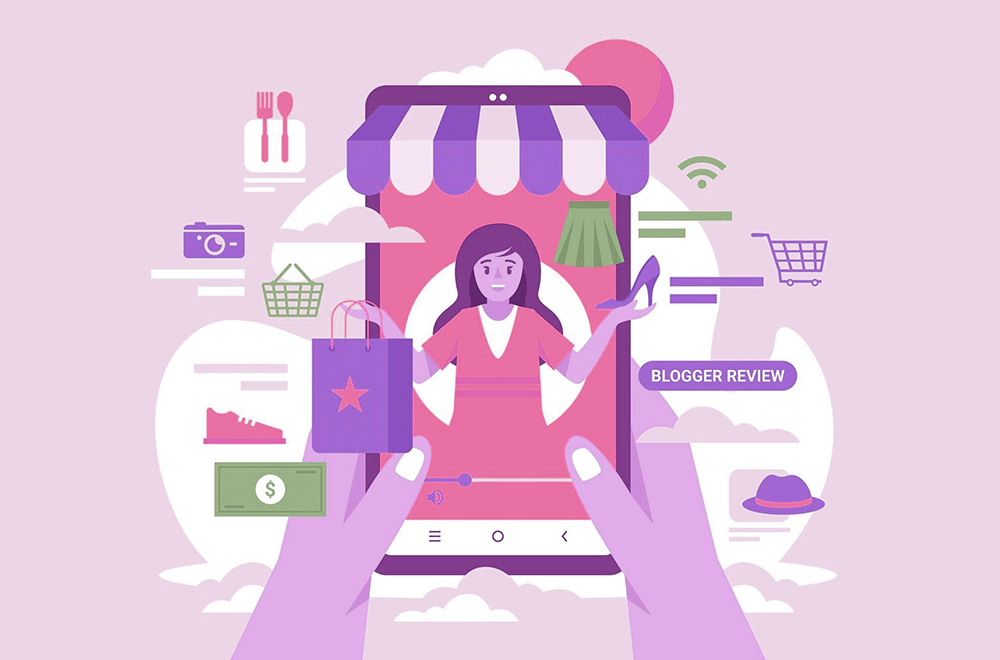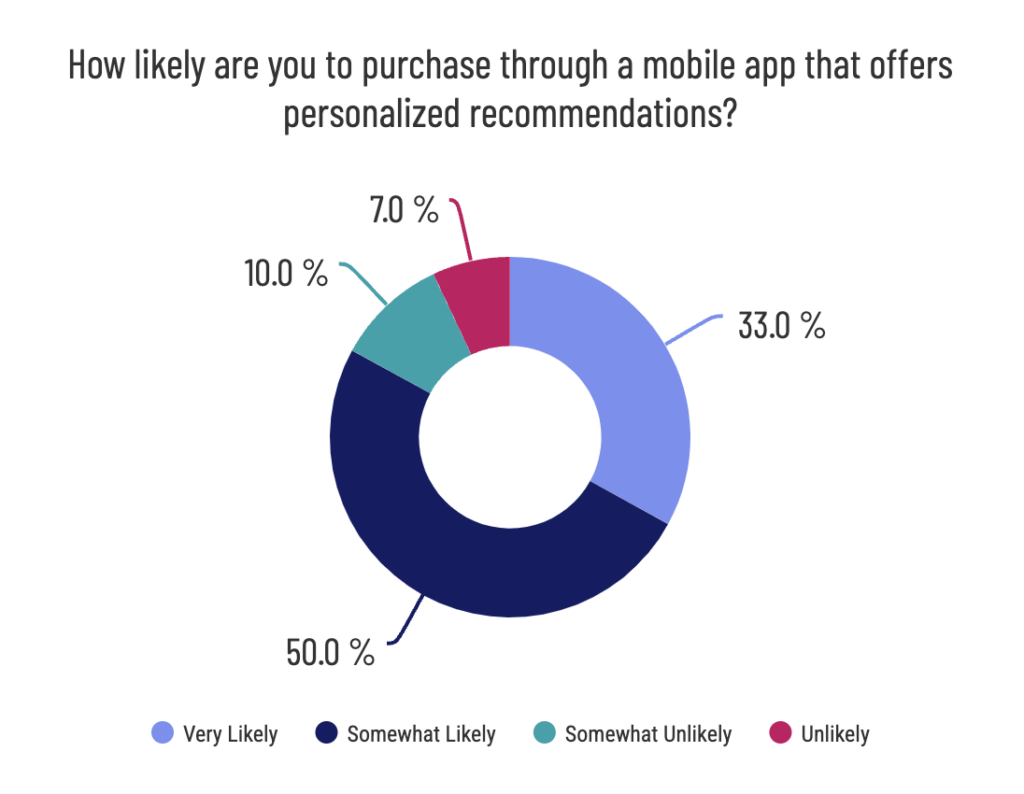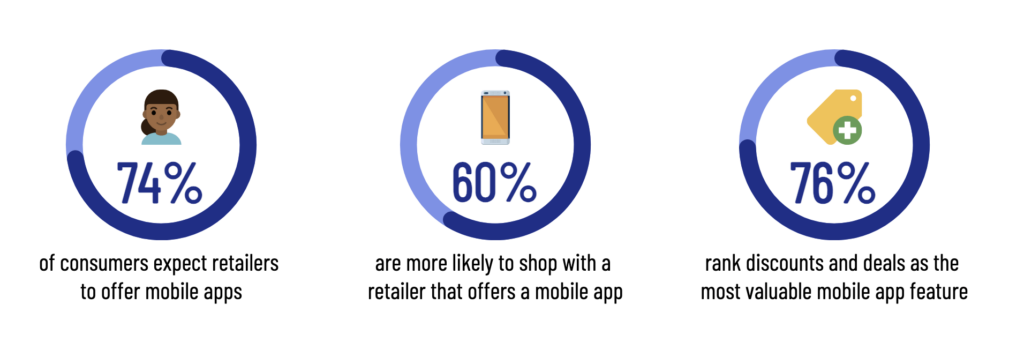Bridging the Digital Divide: The Evolution of E-Commerce in the Retail Industry

In today’s ever-evolving retail industry, integrating e-commerce and digital technologies has become both a trend and a necessity. According to a recent retail survey conducted by Bryj, nearly 3 in 4 (74%) consumers expect retailers to offer mobile apps. This figure is even higher among Gen Z (82%) and Millennial (81%) shoppers. As consumers increasingly turn to online platforms for their shopping needs, retailers have had to adapt, embracing digital solutions to streamline operations and meet the changing expectations of tech-savvy consumers. Mobile apps have undeniably revolutionized how retailers interact with their customers, elevating the shopping experience to new heights.

The Rise of Mobile Apps in Retail
In the current business landscape, a mobile app is an absolute necessity for any retail company that wishes to maintain a competitive edge. Retailers recognize that consumers, particularly the younger generations such as Gen Z and Millennials, are true digital natives. Our survey indicated that 83% of consumers would be more likely to purchase an item from a mobile app that offers personalized recommendations. This is especially critical for Gen Z and Millennials shoppers (91%). These tech-savvy individuals not only expect but demand seamless and intuitive mobile experiences when shopping online. As a result, mobile apps have become a crucial investment for retailers catering to digitally-driven consumers.
Streamlining Operations: Mobile Checkout and Beyond
One of the primary advantages of mobile apps for retailers is the ability to streamline the checkout process. Mobile checkout has become a game-changer, allowing customers to complete transactions with a few taps on their smartphones. This not only reduces friction in the buying process but also enhances the overall convenience for the customer. Our survey shows that 55% of consumers are more likely to make in-store purchases if retail employees have access to mobile handheld devices to check inventory, while 45% of respondents said the same about mobile checkout. With the help of secure payment gateways and digital wallets, retailers are making it easier for consumers to purchase products on the go.
However, the gap between consumer expectations and reality remains, especially among the younger demographic. Despite the widespread adoption of mobile apps, issues such as slow loading times, clunky interfaces, and inconsistent user experiences still plague many retail applications. Our results show that 44% of consumers are only somewhat satisfied with the mobile shopping experience and wish for enhancements, while 8% are dissatisfied. To improve the mobile shopping experience, retailers are increasingly using innovative technologies like artificial intelligence (AI) and augmented reality (AR).

Blending Physical and Digital Experiences
Retailers are exploring new ways to blend physical and digital experiences to meet customers’ evolving demands. For instance, virtual fitting rooms powered by AI and AR technology allow customers to try on clothing virtually, providing a more immersive and personalized shopping experience. This adds a layer of convenience and addresses the limitations of online shopping by helping customers make more informed purchasing decisions. The in-store experience is also being transformed through the integration of digital technologies.
Interactive displays, smart mirrors, and beacon technology are being employed to engage customers while they shop. These technologies offer retailers valuable customer preferences and behavior data while creating a more interactive and enjoyable shopping experience.
The Irresistible Allure of Exclusive Rewards in App Preferences
Exclusive rewards are a key factor in shaping app preferences, serving as a compelling incentive for attracting and retaining users. In a saturated market of mobile apps, consumers seek unique benefits. We learned that 60% of consumers are more likely to shop with a retailer that offers a mobile app, with in-app exclusive rewards highlighted as a key factor influencing this consumer preference (83%).
Exclusive rewards create a sense of value and privilege for app users, whether it’s early access to products, members-only discounts, or special promotions. This fosters a strong emotional connection between the consumer and the brand, driving loyalty and encouraging repeated engagement. The desire for exclusivity influences consumer choice by making them feel appreciated and special. In the competitive world of consumer apps, exclusive rewards are a powerful factor not only in acquiring users but also in building a community of loyal customers.
The Link Between Customer Experience and Employee Experience
As retailers identify new methods to improve the mobile shopping experience, it is critical to recognize the inextricable link between customer experience and employee experience. The success of any digital transformation in the retail sector hinges on the seamless integration of technology into both customer-facing and internal operations.
Employees equipped with the right technology can enhance the overall shopping experience for customers. For example, mobile inventory and order management systems empower store staff to efficiently check stock levels, locate items, and process orders on the spot. Ensuring product availability not only reduces the chances of stockouts but also significantly improves customer satisfaction.
Furthermore, retailers invest in training programs to familiarize employees with new technologies. This ensures a smoother transition to digital processes and increases employee satisfaction by providing them with the tools and knowledge needed to excel in their roles. A satisfied and tech-savvy workforce is better positioned to deliver exceptional customer service and contribute to the overall success of the retail business.
Innovations Empowering Both Consumers and Employees
To provide frictionless consumer experiences, retailers are simultaneously empowering their employees with the right technology to increase productivity, agility, and performance. Mobile checkout, for instance, not only expedites the purchasing process for customers but also enables employees to move freely around the store, assisting customers and managing inventory on the go. Our survey results indicated that 55% of consumers are more likely to make in-store purchases if retail employees have access to mobile handheld devices to check inventory, while 45% of respondents said the same about mobile checkout.
Mobile inventory and order management systems are another innovation that benefits both customers and employees. Real-time access to inventory data allows employees to provide accurate information to customers regarding product availability. This improves customer satisfaction and reduces the likelihood of lost sales due to items being out of stock.
Navigating the Intersection of Digital and Physical Experiences
The integration of e-commerce and digital technologies into the retail industry has become more than just a trend – it is now a fundamental aspect of staying competitive in a rapidly changing market. Mobile apps have become essential for retailers to engage tech-savvy consumers and optimize operations. Retailers constantly innovate to improve the digital shopping experience, from mobile checkout to virtual fitting rooms powered by AI and AR.
Despite the strides made in digital transformation, there is still work to be done in bridging the gap between consumer expectations and reality, especially among Gen Z and Millennials. Retailers must continue to invest in technologies that meet the demands of the present and anticipate future needs. Moreover, recognizing the symbiotic relationship between customer experience and employee experience is essential for creating a cohesive and successful digital strategy.
Retailers can now provide frictionless experiences to consumers and empower their employees with mobile checkout, inventory, and order management technology for increased productivity, agility, and performance. As the retail landscape continues to evolve, those who successfully navigate the intersection of digital and physical experiences will emerge as leaders in a competitive market, ensuring the longevity and success of their businesses in the digital age.
Bryj has driven powerful, mobile-first experiences across the retail landscape at speed, helping customers including Salsa Jeans, Saks Fifth Avenue, Dooney & Bourke, and Pacsun elevate their mobile strategies to boost ROI, streamline inefficient processes, and unlock the super-premium experiences that are necessary for sustained business success. Contact our expert team today for more details.


